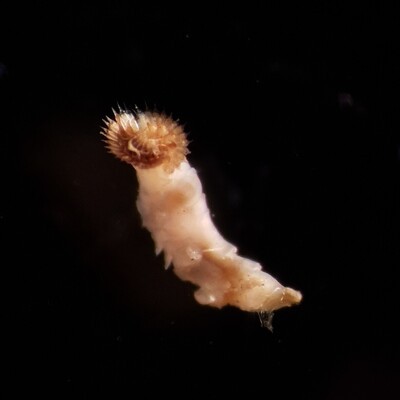M.J. Baptist1*, J.W.P. Coolen1, O.G. Bos1, J.P. Verdaat1, A. Meijboom1, O. Bittner1, N. Peck1, B.E. van der Weide1
1 Wageningen Marine Research, Den Helder, the Netherlands
* Corresponding author: martin.baptist@wur.nl
Introduction
Sabellaria worms are tube-dwelling polychaetes; they construct their own 'homes' using sand. Unlike solitary tube worms, they form interconnected reefs composed of sandstone-like material. These reefs are therefore commonly referred to as ‘Sandkoralle’ in German. Two species of Sabellaria worms are found in the Northeast Atlantic region: the Ross worm Sabellaria spinulosa and the honeycomb worm Sabellaria alveolata. Reefs of Sabellaria were a prevalent sublittoral structure in the 20th century in the German Wadden Sea. Intertidal reefs were also documented. Until the 1950s, reefs were found in many locations, but their occurrence has since declined and reefs do no longer exist in the Wadden Sea.
Objective and Methods
The 3D structure of the reefs attracts high species richness and in addition the reefs also provide ecosystem services such as wave attenuation and sediment stabilization. Restoration of these reefs will therefore restore important structures and functions of the Wadden Sea. This study mapped the habitat preferences for Sabellaria based on depth, flow velocity, sediment grain size, salinity and gully slope. A potential hotspot was identified and was surveyed using side-scan sonar, an underwater drone and with divers.
Results
We found a rich fauna of sponges, anemones and sea squirts on a 40 ha large stone revetment near Texel. And, we found an individual of Sabellaria spinulosa. Follow-up steps to restore these reefs in the Wadden Sea will be discussed.

Sabellaria spinulosa tubeworm found near Texel.










